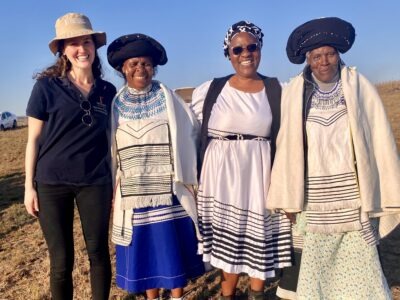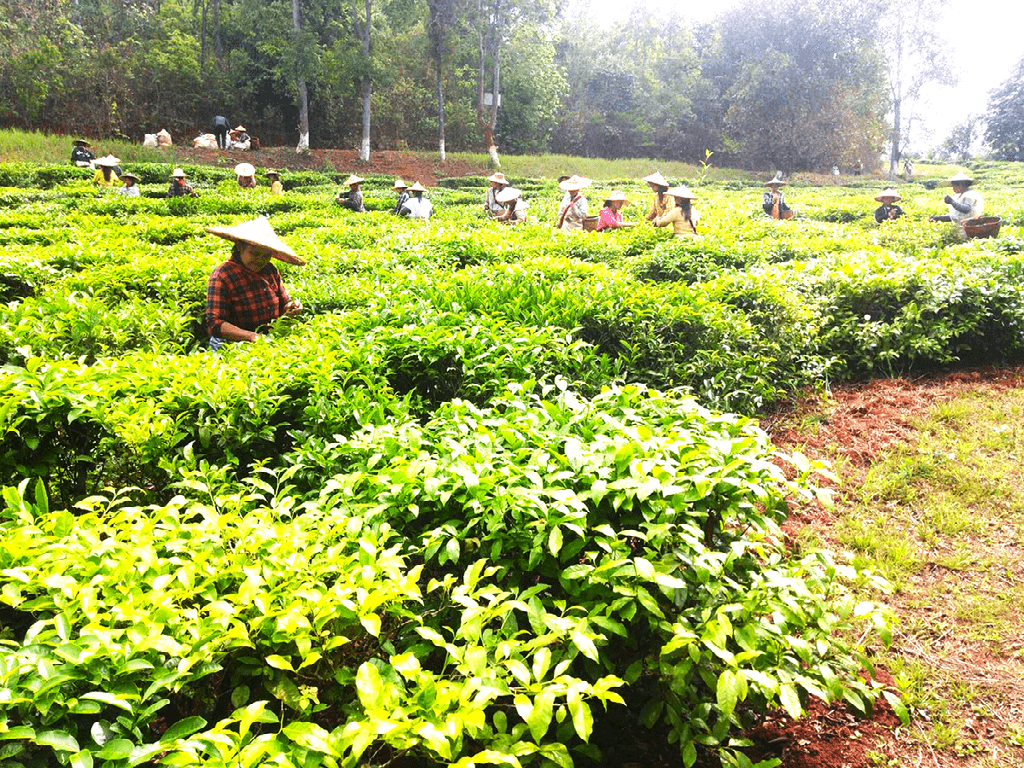
Shwin Chang Lone Co., Ltd. (SCL) has been in the tea business for over 30 years. In 2001, they started planting tea trees in Tangyan township, in the Northern Shan State of Myanmar, as a substitute for poppy growing, creating hundreds of jobs and stable income for ethnic minorities, especially women.
Factory Demand
In January 2021, SCL partnered with USAID to manufacture higher value-added tea products and expand into more discerning markets. Through the Feed the Future Burma Agriculture and Food Systems Development Activity (AFDA), implemented by ACDI/VOCA, USAID contributed tea processing equipment including biomass pellet equipment to switch from wood to organic matter leftover from nearby crop waste to roast the tea leaves.
The increased tea processing boosted demand for locally grown tea leaves which ultimately led to higher incomes for local tea growers, suppliers, and factory workers, many of whom were members of ethnic groups.
Tea Collection
SCL built three new tea collection centers near the tea farms to collect tea at its source since tea processing is very time sensitive. From the time farmers pluck the tea leaves, initial processing must take place within two hours to maintain the quality.
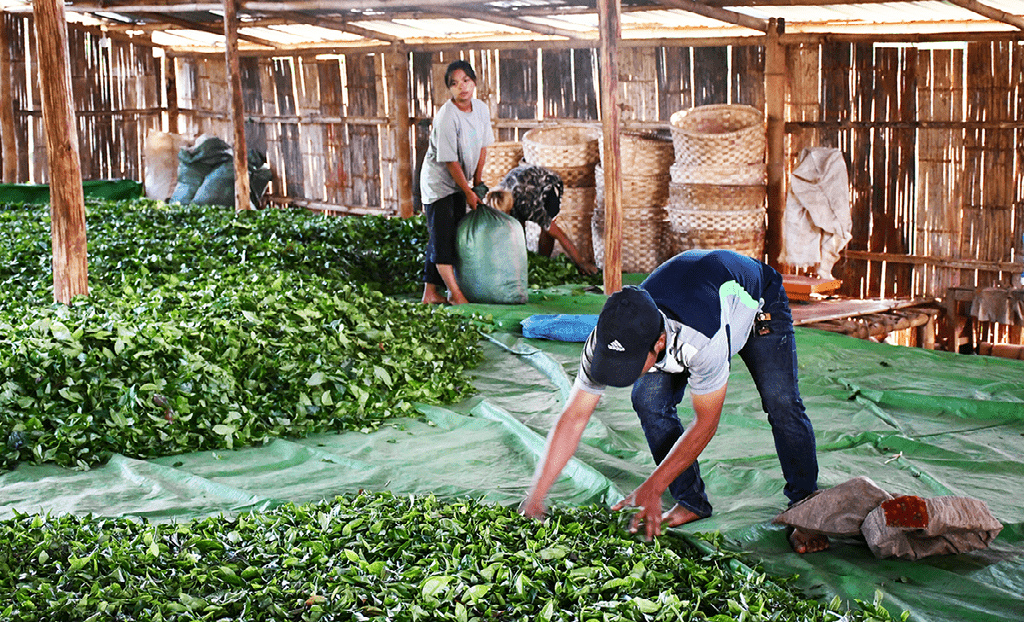
SCL worked with its tea collectors to establish collection centers in tea-growing communities in the Northern Shan region to feed into the upgraded factory. These collection centers consolidate tea leaves at the community level, start the tea leaf processing to maintain quality, and deliver them for further processing or packaging at the main factory.
The collection centers are game-changing for local tea farmers. The ease of access to market reduces transportation costs and the freshly plucked tea leaves fetch a higher market price.
Connecting Local People to Local Work
Even though tea farms surround hard-to-reach Mat Khan village, most men and young people work as migrant laborers in border towns in China. Poor road conditions and lack of business knowledge left the remaining villagers with no other options than to sell firewood and farm for low wages.
Aye, a mother of two and an ethnic woman from Tangyan township, is now a reliable buyer for tea farmers since SCL established a collection center there.
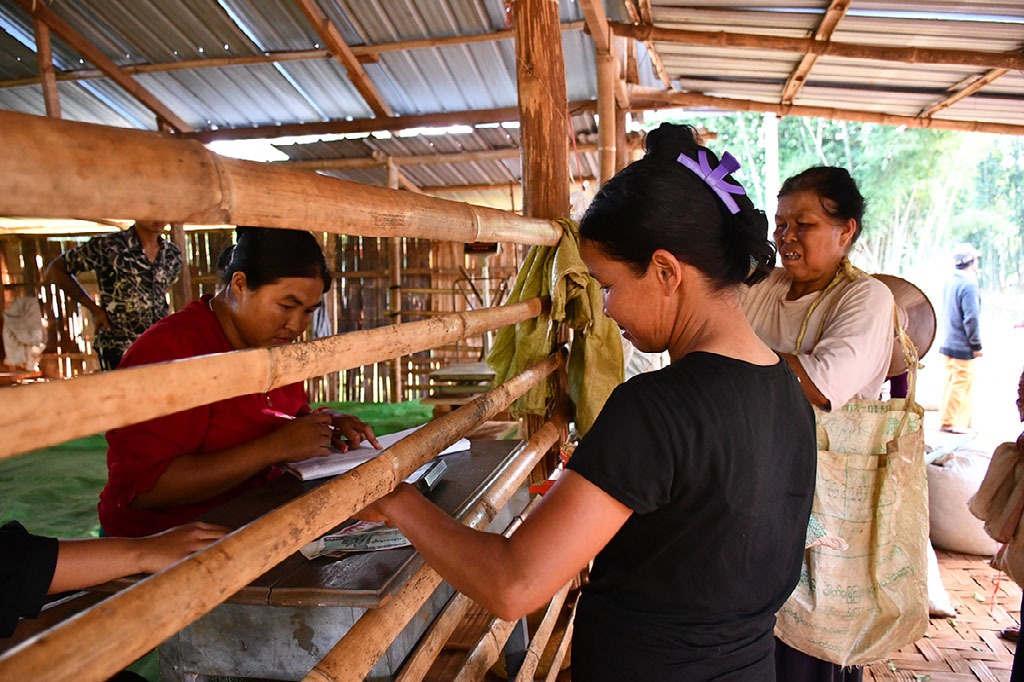
“At first, only a few people come to the center to sell tea leaves. Residents, especially housewives, gradually heard that they could get a good daily income if they pick tea leaves the right way to get the quality that the company needs. Now, there are more and more people selling tea leaves at the collection center, including young people.”
-Aye
With the help of three other employees, tea leaves are quality checked at the center, weighed, and spread out onto bamboo mats to retain their freshness before transporting to SCL’s tea factory in Tangyan. Aye takes record of the procurements and pays the tea pickers in cash.
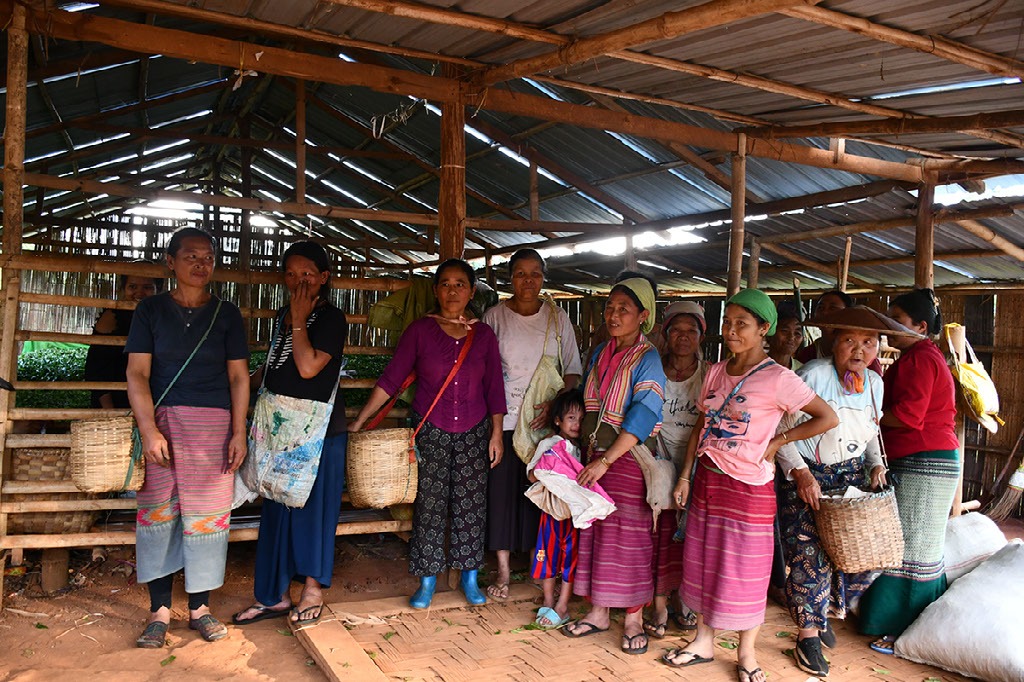
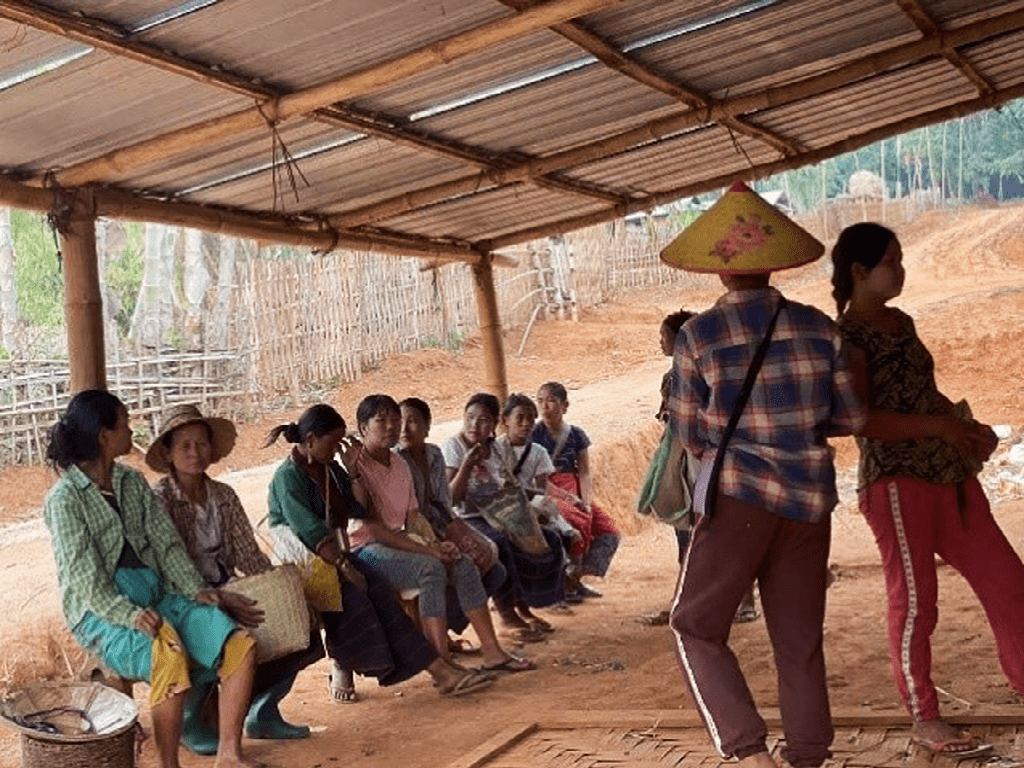
Aye became a reliable buyer, giving the right price to the tea pickers and growers according to the quality of tea leaves. Business was booming, and Aye needed a bigger truck to transport more tea leaves in less time to maintain their quality.
During peak harvesting times, Aye buys from the farmers as late as 9 p.m. and then transports the tea leaves to SCL’s factories, over an hour and a half drive away, sometimes in two trips because her small tractor cannot carry all the tea leaves at once. Sometimes, due to the long hours of transporting, the quality and freshness of tea leaves are affected, and Aye couldn’t deliver high quality tea leaves.
“The roads are rough even in open season to transport. It is even worse in rainy season and impossible to drive a tractor on those roads while raining. I heard from SCL that USAID AFDA had a microgrant program. I was really in need of a four-wheel truck, so I applied for a microgrant.”
-aye
Help Is on Its Way
With part of her MMK 5 million (around USD 2,800) grant, Aye rented a four-wheeled truck for six months, later buying her own secondhand four-wheeled truck with the profits she made from procuring tea leaves for SCL. With the rest of the grant money, Aye purchased waterproofing material to protect the tea leaves during the rainy season, baskets and weighing scales for accurate transactions, and solar street lamps to buy tea leaves late into the evening.
Aye’s earnings are commission-based. SCL pays her a percentage for every kilogram of fresh tea leaves she procures. The higher her volumes, the more profit she makes.
Aye increased her average procurement volume from about 0.7 MT/day to 2 MT/day. She made MMK 43,258,638 (USD 24,719) in seven months and procured and transported 76,452 kg of fresh tea leaves from over 100 sellers comprised of 80 women (56 of which were youth) from Shan and Ta-arng ethnicities.
Other Grantees
Aye is not the only consolidator who benefitted from the microgrant program. Six others from the Northern Shan State purchased equipment for tea processing including a tea roasting machine, tea drying shelves, a steaming pot, a tea roller, a 22HP generator, baskets, and waterproof cloths for drying and roasting tea leaves.
The tea growers were also able to transport good quality tea leaves to their end market, SCL. For each grower, the equipment procured under the AFDA microgrant program helped increase incomes between USD 13,313 and USD 44,343 per person during the seven-month microgrant period.
Making an Impact
SCL’s updated factory and new collection centers created a better environment for tea farmers, many of different ethnic backgrounds. SCL has created a reliable and stable market for tea growers at a time when the country is in economic and political upheaval. Over the next two years with the Agriculture and Food Systems Development Activity, USAID aims to increase smallholder farmers’ access to domestic and international markets by working with small and medium enterprises committed to improving the quality and availability of agricultural inputs and services for all farmers, regardless of ethnic background.
Learn more about the Feed the Future Burma Agriculture and Food Systems Development Activity.
Learn more about our work in Myanmar.

